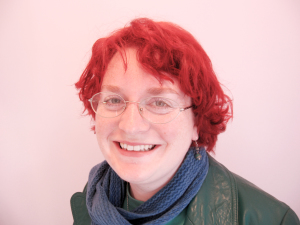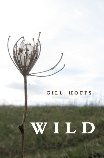The Writers Who Read series continues this week with the lovely Gill Hoffs.
Who are you?
The one, the only, Giiiiiiiiiillllllll Ho-o-o-offfffffs! You’ll have to imagine the drumroll, cymbal clash, and ringmaster’s flourish with a whip. I was raised along the west coast of Scotland and now live in Warrington in the north-west of England with my scientist husband, seven-year-old son, fat cat Coraline and never quite enough chocolate. I’m a vegetarian atheist with a psychology degree, sweet tooth and immense loathing for veg, twelve tattoos including my old dog’s name and a hammerhead shark, dyed red hair, and wonky specs (my son keeps playing with them). I used to work with children with emotional/behavioural difficulties, but now I write and do talks and workshops and generally have a blast with words instead. My short stories, guestblogs and articles are online (see gillhoffs.wordpress.com for links if you want a nosy) and there’s some fiction and nonfiction in print, too, including a story a month in the twelve Pure Slush anthologies that make up “2014: A Year in Stories”. I’ve two books out, “Wild: a collection” (Pure Slush, 2012) which is a mixture of fiction and nonfiction, and more recently “The Sinking of RMS Tayleur: The Lost Story of the ‘Victorian Titanic’” (Pen & Sword, 2014) which is about a shipwreck off the coast of Ireland that I’m somewhat obsessed with. If you’re a descendant of someone involved with the tragedy or know anything about it then please do get in touch. Apart from that if you could keep your fingers crossed for me while my novel, a maritime thriller, is out on submission with agents I’d greatly appreciate it!
What are three beloved books you first read before the age of 12?
“Slugs” by Shaun Hutson, “Riders” by Jilly Cooper, “The Velveteen Rabbit” by Margery Williams. I was quite a precocious reader and sometimes deliberately read a book with a cover (or author) likely to shock the children and adults at school. When you’re unhappy somewhere and getting unpleasant reactions anyway you might as well go for broke and at least have some control over it. For me, quite apart from my love of racy fast-paced and sometimes melancholy reads, the tut-tutting of book-snobs gave an added frisson of excitement to my reading material.
 What is one book you are always recommending to friends and family (and maybe the local barista) as an adult?
What is one book you are always recommending to friends and family (and maybe the local barista) as an adult?
“Dancing on Ice: A 1930s Arctic Adventure” by Jeremy Scott to anyone interested in history, nonfiction, atypical love stories and adventure. “Blacklands” by Belinda Bauer (along with the rest of her canon) to folk who like crime/thriller novels. “How To Tell If Your Cat Is Plotting To Kill You” by The Oatmeal to people who want something to make them laugh. I sent Jeremy Scott a fan letter after reading his book – I was that impressed with it – and he very kindly replied. He is every bit as witty and charming as he appears in his autobiography “Fast & Louche: Confessions of a Flagrant Sinner”, which I would also heartily recommend.
What is your book kryptonite–those unique elements in a book, beyond just great writing and three-dimensional characters, that make you unable to resist reading?
I can’t resist gruesome detail, strong plot, and a countryside or maritime setting. I think it was Joss Whedon who said something about how you have to earn the reader/viewer’s relief at a character’s survival in a predictably fatal situation by killing off someone else beforehand, to show the reader/viewer that yes, the writer is willing to go *that* far and no-one is ‘safe’. Anything with drowned villages, secret passages, caves, haunted antiques, or bodies lost in ponds is a must-read too. Recommendations are very welcome!
What is your ideal time and place to read?
Anytime, anywhere, though if I read while moving I tend to feel queasy (boo, hiss). I always read at least a couple of pages (usually a multiple of 9) in bed before I go to sleep – it tends to clear my head of the type of thoughts that seep into my dreams and prey on my generally positive attitude, and the 9 thing is because I like to finish on a page number that adds up to 12 (or, of course, 3). It’s a daft superstition but helpful if my cat, Coraline, knocks my book off the nightstand and I lose my place. Although I have many beautiful bookmarks that I’ve been given over the years, I have a terrible habit of leaving a book open, face-down, to keep my place – I quite like the white creases that develop along a much-read book’s spine. They’re like laughter lines on a face, visible reminders of past enjoyment.
Which books have had the biggest influence on your writing?
Too many to recount! “Mirror” by Graham Masterton, “The Small Assassin” collection by Ray Bradbury, “Sleeping Murder” by Agatha Christie, “The Book of Lost Things” by John Connolly, “Dancing on Ice: A 1930s Arctic Adventure” and “Fast and Louche” by Jeremy Scott, “The Stake” by Richard Laymon, “The Wasp Factory” and “Complicity” by Iain Banks, “Toady” by Mark Morris, the Inspector Lynley mysteries by Elizabeth George, “Stardust” by Neil Gaiman, “The Sad Book” by Michael Rosen, everything by Dick Francis, “Jurassic Park” by Michael Crichton, “The Palace of Curiosities” by Rosie Garland, “Mauve” by Simon Garfield, “Limeys: The Conquest of Scurvy” by David I. Harvie, and absolutely everything by an amazing crime/thriller writer called Belinda Bauer.
How do you balance reading and writing in your life?
Whichever I crave the most, I indulge in. I can have spells of only reading things online, emails, social media and the like then get a sudden desire for a certain book, often one I’ve read before (perhaps a couple of hundred times) and start binge-reading whatever takes my fancy. I do the same with writing unless I have committed to a piece or project or know it’s something I really need to do. Some writers I know worry when they spend time away from writing, in case they don’t return to that creative flow, and there’s a common idea that you must write at least a little every single day – outside of social media, I mean. I don’t necessarily agree, not for every writer, anyway. I have faith in my brain and its tidal nature and trust that sometimes it needs the input of other people’s words in a frenzy, and other times it needs to spit words back out as fast as I can type them or scribble. Forcing the process leads to what I can only equate to a sulky, sullen, resentful teenager in my head rather than the imaginative weirdo I prefer.
Choose your preferred book form: ebook, physical book, or audio book?
Definitely physical, and preferably from roughly the period the book was first published – I find modern editions of the first Agatha Christies and Dick Francis’s jarring and uncomfortable. I like the smell, the feel, the cover, the reassuring weight of it in my pocket – everything about them, especially ancient inscriptions by whoever first bought/gifted it and author signatures. I have an antique book of Robert Burns’ poetry (not that I’m a fan, I’m not, despite growing up close to his cottage) with the beautifully inked message “Presented to:- Robert D. Poplis, by his friend Edward Gibbon Esq. for reciting to him and others “Tam O’Shanter,” April 12th 1888″ – that’s one loooooooong poem – and I’m a sucker for hand-cut pages (especially if the last few are still uncut as I can’t help but wonder if the reader grew weary of the book or died before finishing it), old inscriptions, and doodles or items secreted within pages.
Do you consciously plan your future reading–i.e., set book goals, keep a TBR list, participate in book challenges or book clubs? Why or why not?
Definitely not, everything about that gets my hackles up and makes me remember forced reading at school, which I loathed, especially when we all had to read aloud in turn and I got told off (a LOT) for reading ahead. I understand the usefulness of this for some readers and certainly wouldn’t discourage it but for me, no, absolutely not. I have piles – and I do mean plural, spread across various shelves and tables and areas of carpet – of TBR books, some by friends and acquaintances and label-mates, some gifted by loved ones or picked up in charity shops or on a whim, and sometimes I’ll read something because I *should*, for research or review purposes, but generally I go on instinct, and quite often re-read a favourite comfort book before venturing into new terrain.
What are you reading now?
“The Guillotine Choice” by Michael J. Malone, “Longshot” by Dick Francis, “Shipwreck” by Sam Willis (I tend to have a lot of books on the go at the one time), “The Book of Lost Things” by John Connolly, “Broken Monsters” by Lauren Beukes, and “Mrs Pig’s Bulk Buy” by Mary Rayner and “Haunt: Dead Scared” by Curtis Jobling at my son’s bedtime. I also tend to pinch my husband’s copies of New Scientist. Some of that’s worse than a horror story.
You can find out more about Gill on Twitter (@gillhoffs) or on her website.
